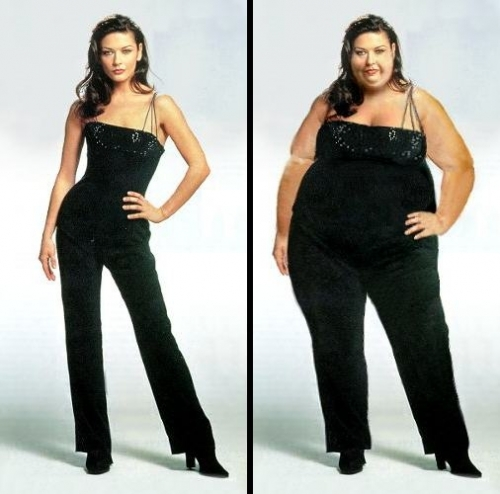In my line of work; they tell trainers that there is no such thing as the “Fat Gene.” However, I DO believe that genetics plays a huge role in how difficult it is to shed weight and keep it off.
According to an article written by MSNBC; it takes 3-4 hours of physical activity per day to ward off the “Fat Gene.” This could mean bad things for people who have desk jobs!
Sound pretty daunting?
Not for the Amish of Lancaster County, Pa., who were the focus of a new study on a common genetic variation that makes people more likely to gain weight. It turns out the variant’s effects can be blocked with physical activity — lots of it.
Scientists believe about 30 percent of white people of European ancestry have this variant, including the Amish, and that may partly explain why so many people are overweight.
But fighting that fat factor may be easier in the Amish community’s 19th century rural lifestyle. They don’t use cars or modern appliances. Many of the men are farmers and carpenters, and the women, who are homemakers, often care for several children.
The researchers found that Amish people with the genetic variant were no more likely to be overweight than those who had the regular version of the gene — as long as they got three to four hours of moderate activity every day. That included things like brisk walking, housecleaning and gardening.
And while physical activity is recommended for just about everyone, the study suggests that people with the gene variation need to be especially vigilant about getting exercise.
“These findings emphasize the important role of physical activity in public health efforts to combat obesity, particularly in genetically susceptible people,” the authors wrote in Monday’s Archives of Internal Medicine.
Study co-author Dr. Soren Snitker of the University of Maryland acknowledged that it’s unrealistic to expect most people to shun modern conveniences and return to a 19th century lifestyle for the sake of staying trim.
Every little bit helps
But he said every little bit helps, and that adding an extra few hours of activity daily might not be as hard as it seems.Instead of watching TV for a few hours at night, take a brisk walk, he suggested. Or use stairs instead of elevators, walk instead of driving, or take up a structured exercise such as swimming.
Previous research based on self-reporting of physical activity has produced similar results. The new study used a more reliable measure — battery-operated monitoring devices worn round-the-clock for a week, said lead author Evadnie Rampersaud of the University of Miami.
More research is needed to see if similar results would be found in other racial and ethnic groups, said Amy Zlot, a genetics researcher with Oregon’s Department of Human Services, who was not involved in the study.
The Amish study involved 704 people; blood samples determined which of those had a variation in the FTO gene linked to obesity. Among those with the variant, those who got about three or four hours of moderate physical activity a day weighed up to about 15 pounds less on average than the least active people.
Big trouble for couch potatoes
The least active group would be comparable to Americans who get little exercise beyond normal activities of daily living, Snitker said.The authors said it is not clear how the FTO gene influences excess weight, but it is believed to be involved in the function of a protein that may affect how the body regulates food intake.
“It’s only if you’re not active that the gene hurts,” Snitker said. “If you are active, then either way, it doesn’t matter whether you have the gene or not.”
Mississippi tops the list of heaviest states while Colorado stays slimmest.So far, blood tests identifying the gene variant are only available for research. Experts say there are likely many other genetic differences that also influence obesity, so it is too soon to recommend routine testing for the general public.
Dr. Joel Hirschhorn, a genetics and obesity researcher at Children’s Hospital Boston, said people should not interpret the study to mean, “I don’t have this gene variant so I don’t need to be physically active.”
He noted that other obesity gene variants might also be affected by physical activity, which has benefits beyond helping people stay trim.
I knew that you could fight the “fat gene; ” however this is the first time that research has put an actual number on it. It sounds simple, yet moving is the key to a healthy life.
Adria Ali
(CES, PES, CPT, BS)




Leave a Reply